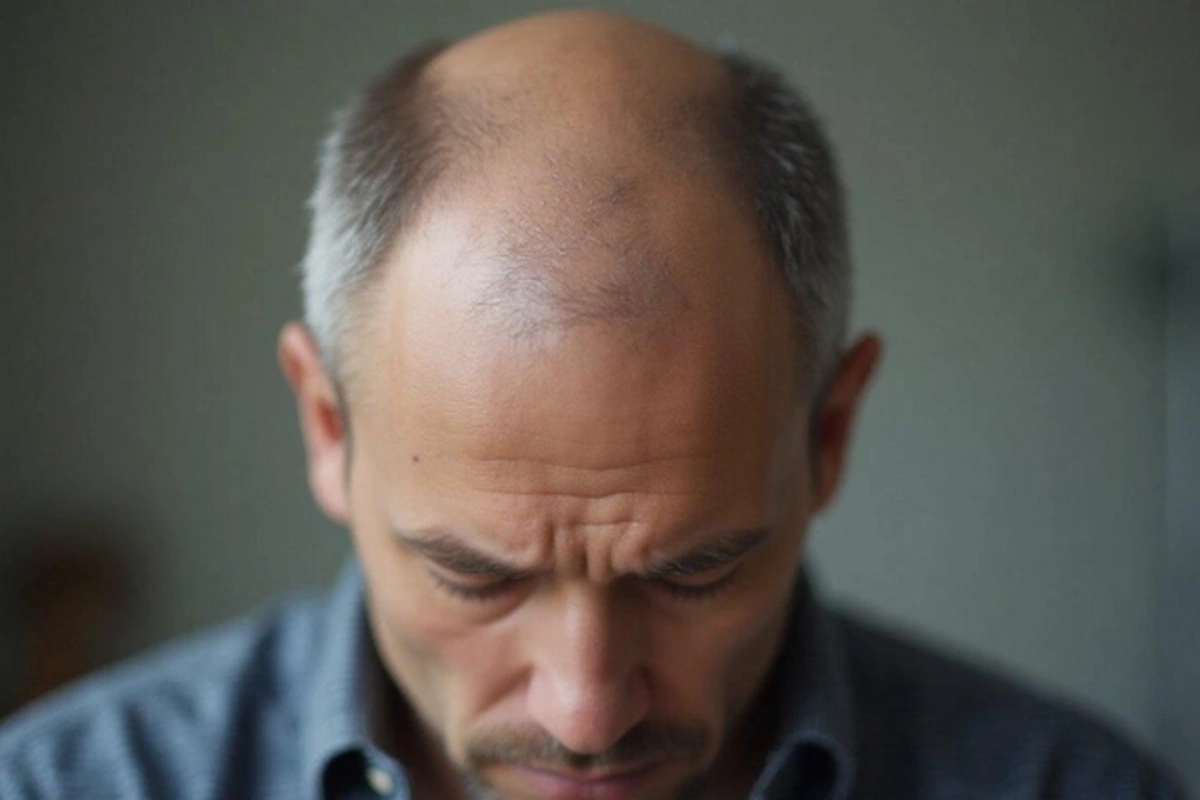09 Jun , 18:05
2

The Hidden Enemy of Men's Hair: How Stress Silently Robs Even Young Men of Their Hair
When it comes to male baldness, most people immediately think of heredity, age-related changes, or hormonal imbalance. However, specialists draw attention to a less obvious but equally dangerous "thief" of hair – chronic stress, which insidiously affects the hormonal background and immune defense of the body.
Under conditions of constant tension, the body produces increased doses of cortisol – the main stress hormone. This negatively affects the blood supply to the scalp, causing hair follicles to experience real "oxygen starvation" and a deficiency of nutrients. The result doesn't take long to appear – hair loses its vitality and begins to leave the head earlier than nature intended.
Stress is much more than just a feeling of fatigue or depressed mood. It triggers a whole cascade of inflammatory reactions with a systemic effect in the body. In some cases, this provokes a malfunction in the immune system, which begins to attack its own hair follicles. Such a "friendly attack" can cause both local and extensive hair loss in men who seemingly have no predisposition to it.
Another problem closely related to stress is disruption of healthy sleep. Insufficient or poor-quality rest seriously affects the production of testosterone and other hormones responsible for normal hair growth. Studies show that even a few weeks with a disturbed sleep pattern can significantly worsen the condition of the scalp and slow down cellular recovery processes.
Changes in eating behavior cannot be discounted either. During periods of chronic stress, many men unconsciously reach for fast carbohydrates, sweets, and fast food. Such a diet is critically deficient in B vitamins, iron, zinc, and quality protein – precisely those elements without which it is impossible to form strong and healthy hair.
When there is a noticeable increase in hair loss, specialists recommend not limiting oneself to standard checks of hormonal levels and genetic markers. It is equally important to assess stress levels, sleep quality, and the general condition of the body. Sometimes the key to solving the problem is not where it's being looked for, but it is precisely this key that becomes decisive in the fight to preserve one's hair.